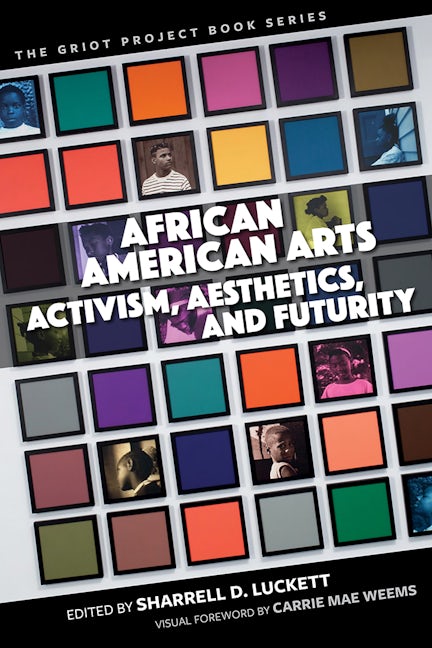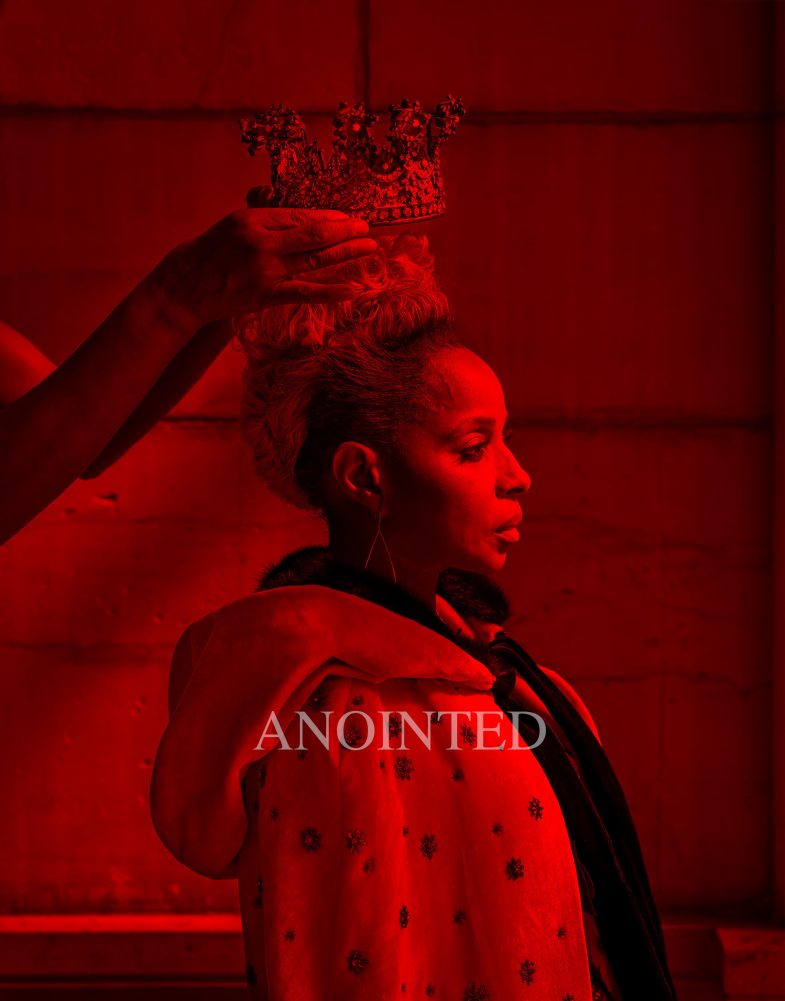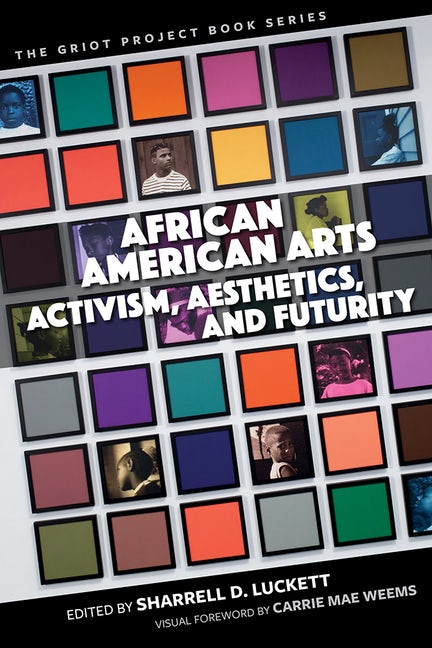On the last day of University Press Week’s blog tour, hear from several of the voices behind African American Arts: Activism, Aesthetics, and Futurity, edited by Sharrell D. Luckett. This anthology explores the role of African American arts in shaping the future, and further informing new directions we might take in honoring and protecting the success of African Americans in the U.S.
Q: It’s been nearly a year since African American Arts was published, and what a year it has been. In the introduction, you wrote that “this anthology anchors itself in a place that might be betwixt and between the not yet solved and the unsolvable, the never broken and the unbreakable, the dream deferred and the daydreamer. Borrowing from Childish Gambino, many of these essays function as a clarion call to not only wake up (upending from an induced, albeit conscious sleep—a state of un(rest)), but to stay woke.” How can arts, aesthetics, and activism help us continue to wake up and stay woke as we move into the future? How can organizations in the arts and humanities, like University Presses, continue to help raise up artist and activist voices?

Sharrell D. Luckett: Artists run the world. As long as artists continue to make art, the world has no choice but to evolve and revolve when necessary. As citizens we must engage in art to help guide us in our life-long pursuits. Art, broadly defined, speaks when no one or nothing else can. Organizations in the arts can continue to support artist-activist voices by providing platforms for artists to share their work. Funding is also critical to the sustainability of art in certain forms or with certain needs. And of course, connecting artists with audiences is always ideal.
Luckett is an award-winning director and bestselling author and editor of several books. At the University of Cincinnati, she is the Director of the Helen Weinberger Center for Drama and Playwriting, professor of Theatre and Performance Studies, and faculty collaborator with College-Conservatory of Music. Luckett is the founding CEO of the Black Acting Methods Studio, a face-to-face, virtual, and mobile performance training institution.
Q: In the eleven months since African American Arts was published, what did you take away, from your own work or another essay in the collection, about the role of African American arts and activism in our society? What moment or statement stuck with you?
Genevieve Hyacinthe: ANOINTED. Like the North Star, the photoprint, Untitled (Anointed) (2017) by genius, Carrie Mae Weems, is the opening image of African American Arts, Activism, Aesthetics and Futurity, aligning the constituent essays into consonance. In it, Weems layers the word ANOINTED over a soft hue of red through which we see the majestic profile of Mary J. Blige. Two graceful arms enter the picture plane on the left just above Mary’s head, viewed in the midst of coronating her with a resplendent crown that hovers just above her distinctive copper-tinted hair, here swept up into a lush cluster. But the word, ANOINTED, is in the past tense. Mary is already Her Majesty, anointed, divine, whole, saved, omnipotent, ordained. Our writing, like the placing of the crown, simply shines a light on what is both immanent and transcendent: We too are the ANOINTED ones following the Sovereigns near – Mary, Carrie, Sharrell, Kamala, Stacey, D. Soyini, Adrian, Wangechi, Alicia, Opal, Patrisse, bell… and nearer – Carmen, Octavia, Beverly B, Nina, Toni, Breonna, Tamir, Natasha, Riah, Dominique (Rem’mie), Sylvere… on and on…

Hyacinthe is an Assistant Professor in the Visual Studies Program at California College of the Arts.
Q: African American Arts speaks to futurity. At this critical political juncture, how can the arts help us envision and shape a more equitable future? How do concepts such as Afrofuturism and Transfuturism inform visions of the future in your own art?
Amber Johnson: Art aids us in Futurity because art is where the imagination lives. The future has yet to be written, experienced, or lived. With art, we get to imagine and build the future that we want. Artists have a very special place in society because they have the ability to project their ideas (ideas that don’t exist in the universe and visual world yet) and onto a blank canvas of their choosing with different forms of media in an effort to manifest the future that they want. When I think about Transfuturism, I think about the body being that blank canvas where imagination is projected. So the trans and non-binary body, just by way of existing, is a form of artistic futurity.
Johnson is an Associate Professor in the Department of the Communication at St. Louis University, Co-Founder of the Institute for Healing Justice and Equity and Founder of The Justice Fleet.
Q: Your essay “The Conciliation Project as a Social Experiment: Behind the Mask of Uncle Tom-ism and the Performance of Blackness” discusses the intersection between the performing arts and activism through The Conciliation Project. Can you speak to the importance of the arts in activism, or in activism within the arts?
Tawnya Pettiford-Wates: As an organization, The Conciliation Project emerged because of an urgent need within our community to address the historic effects of race, racism and systemic oppression. We began initially by examining the thesis presented in a seminal novel of the American cultural continuum; “Uncle Tom’s Cabin” by Harriet Beecher Stowe. This was supposed to be a class project, an academic exercise. We had no idea that the creative process involved in this interrogation would transform a community and create a commitment to use the play we collaboratively created and the platform that the performance of Blackface and whiteface minstrelsy built for open and honest dialogue about America’s destructive and damaging legacy, would ultimately form a company. An arts organization that has, since its inception been dedicated to the restoration of lost stories/histories and the conciliation of our collective racial past through arts and activism. The Conciliation Project has performed and worked in communities regionally, nationally and internationally since 2001.
What makes the work of The Conciliation Project most effective in the arena of social justice and social change education and initiatives is the ability of the Dramatic Arts to empower disenfranchised or marginalized communities and facilitate a process whereby those communities tell their own stories regarding the significant issues and historic events that impact them. Transformative change is the goal and healing the traumatic and historic legacy of America’s racial dysfunction, and the destructive impact it continues to have on our lives and our culture. And finally, we believe, “All art is political in the sense that it serves someone’s politics.” —- August Wilson
Pettiford-Wates is a Professor of Graduate Pedagogy in Acting and Directing at Virginia Commonwealth University, and the artistic director and founder of The Conciliation Project.
